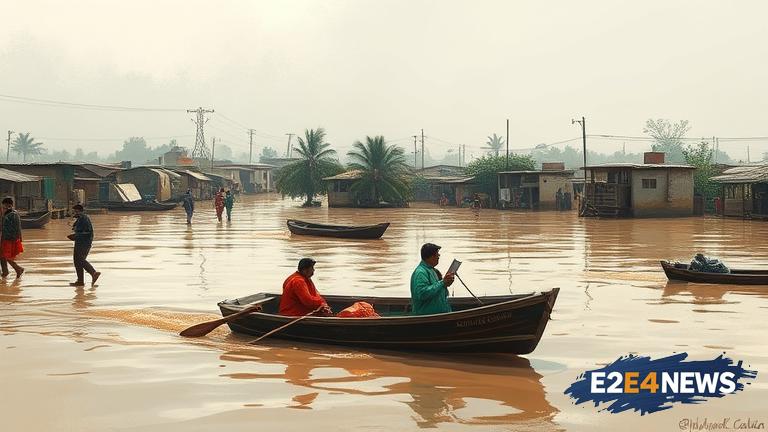Pakistan has been hit by one of the worst floods in its history, with the disaster affecting over 33 million people and causing widespread destruction. The floods have been triggered by heavy monsoon rains, which have been exacerbated by climate change. The government has declared a state of emergency and is working to provide relief to affected areas. The floods have destroyed thousands of homes, roads, and bridges, leaving millions of people without access to basic necessities like food, water, and shelter. The situation is particularly dire in the southern province of Sindh, where the floods have inundated large areas of agricultural land. The Pakistani military has been deployed to assist with relief efforts, including evacuating people from flooded areas and distributing food and aid. International aid is also pouring in, with countries like the United States, China, and the United Arab Emirates providing financial and humanitarian assistance. The United Nations has also launched an appeal for $160 million to support relief efforts. Despite the challenges, there are concerns that the relief efforts may not be enough to meet the scale of the disaster. The floods have also raised concerns about the long-term impact on Pakistan’s economy and food security. The country is already facing significant economic challenges, and the floods are likely to exacerbate these problems. The government has announced plans to provide compensation to affected families and to rebuild damaged infrastructure. However, the road to recovery is likely to be long and difficult. The floods have also highlighted the need for more effective disaster management and climate change mitigation strategies in Pakistan. The government has been criticized for its slow response to the disaster, and there are concerns that the country is not adequately prepared to deal with the impacts of climate change. In response to the criticism, the government has announced plans to establish a new disaster management authority and to increase funding for climate change mitigation efforts. The floods have also had a significant impact on the country’s agricultural sector, with large areas of crops destroyed. This is likely to have a major impact on food prices and availability in the coming months. The government has announced plans to provide support to farmers and to import food to meet the shortfall. The international community has also pledged to provide support to Pakistan’s agricultural sector. The floods have been described as a ‘climate catastrophe’ by the UN, and have raised concerns about the need for more urgent action to address climate change. The disaster has also highlighted the need for more effective international cooperation to address the impacts of climate change. The Pakistani government has called for more support from the international community to help the country recover from the disaster. The floods have also had a significant impact on the country’s infrastructure, with roads, bridges, and buildings destroyed. The government has announced plans to rebuild and repair damaged infrastructure, but this is likely to take time and will require significant funding. The floods have also raised concerns about the risk of waterborne diseases, with thousands of people forced to live in unsanitary conditions. The government has announced plans to provide medical support to affected areas, but there are concerns that the risk of disease outbreaks remains high.
